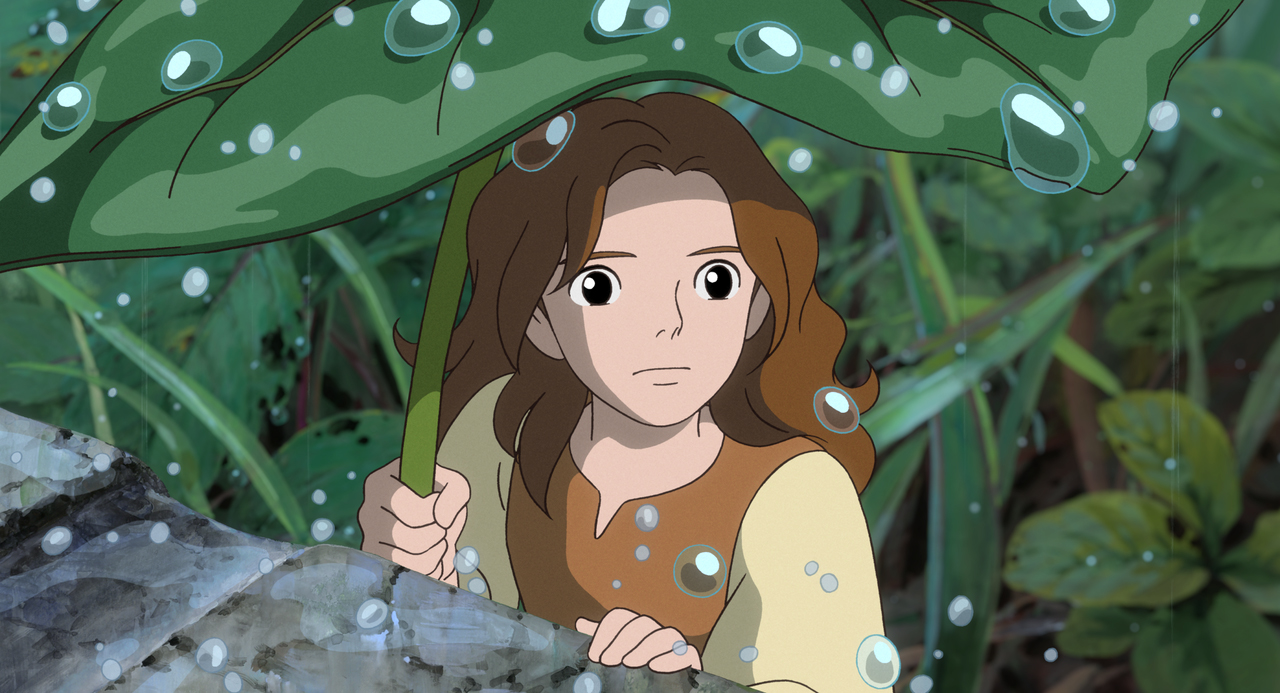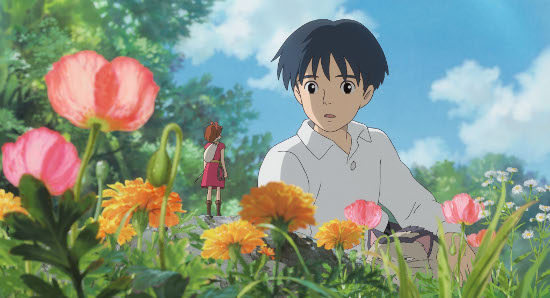Arrietty

Although not exactly a household name, at
least when compared to its gargantuan coevals Pixar and Disney, Japanese
animation house Studio Ghibli have nonetheless been responsible for some
of the most sublime animated gems of the past two decades, amongst them
such incomparable fare as Howl’s Moving Castle, Spirited Away
(the first anime film to win an Academy Award), Laputa: Castle in
the Sky and Princess Mononoke, which was briefly the highest
grossing film in Japanese history until it was eclipsed by a little
picture called Titanic.

The driving force behind these and many
other Ghibli outings has been Hayao Miyazaki, whose colossal imagination
and peerless attention to detail have been steadily honed over a career
which now spans more than half a century. Though he didn’t direct
Arrietty (his credit instead reads ‘Planning and Screenplay’ and the
top job fell to long-time Ghibli animator Hiromasa Yonebayashi, who
worked throughout under Miyazaki’s tutelage) the film nonetheless bears
his inimitable touch throughout, both stylistically and thematically.
Borrowed from the 1952 Mary Norton novel
The Borrowers, a lifelong Miyazaki favourite, the plot of this
latest slice of Ghibli magic revolves around the eponymous Arrietty, a
tiny 14-year-old girl who lives with her family under the floorboards of
a sprawling country house. When a lonely child, Sho, comes to visit his
aunt, he soon discovers the mansion’s miniscule residents, who make
their way by ‘borrowing’ essentials from their oblivious oversized
landlords. Having been spotted by a human throws a sizable spanner in
the works however, and once their secret is discovered Arrietty and her
family must decide whether they can share the realm of clumsy,
destructive humankind or whether they must disappear in search of a new
sanctuary.

A stunningly beautiful and typically
affecting outing from Miyazaki and Co., Arrietty is as poignant
and brilliantly realised an entry into the Ghibli canon as could be
hoped for. Its visuals are simply sublime - it truly popped on the big
screen, and the Blu-ray home edition doesn’t disappoint either - and the
peerless animation perfectly complements its simple yet simultaneously
profound storyline, also something of a Studio Ghibli hallmark. Nimble,
lovely and effortlessly charming, just like its pint-sized protagonist.
Audio & Video
Impeccable, blemish free 1080p HD
transfer? Check. Razor sharp clarity and glorious Miyazaki-esque
colour palette throughout? Check. Superb character designs? Checkity
check. English 5.1 DTS-HD soundtrack? Yes indeed, check. Sadly
however for us animation puritans the Japanese soundtrack is a deeply
inferior two-channel affair. What a slap in the face, when oh when will
they learn? Wait a minute, the Japanese audio on offer is also a 5.1
DTS-HD! Oh Joy, (insert triumphant Sale of the Century $25 Famous
Faces horn blare here). Da-da-da-dah. Yes, although it isn’t always
the case with J-fare the sterling folks at Madman have thoughtfully
included an equally worthy Japanese dub for those who prefer to watch
their anime in its native tongue, and it’s as layered, resonant and
robust as could be hoped for. The soundscape is sublime and composer
Cécile Corbel’s score is out of this world - nothing whatsoever to fault
on the AV front. English and Japanese lossless 2.0 soundtracks are also
on offer. And just to be clear the English version offered here is the
UK dub, not its US brethren, which featured several big names in the way
of Disney stalwart Bridgit Mendler, Parks and Recreation’s
Amy Poehler and Arrested Development’s Will Arnett but is
hardly missed in the face of such auditory abundance.
Extras
Plenty on offer in this regard, the
standouts being a singularly whimsical 25-minute interview with
animation deity Miyazaki and a 40-minute interview with the boyish and
eminently likable Yonebayashi. Also included are alternate angle
storyboards, original Japanese trailers and TV spots, an Arrietty’s
Song promo video and interviews with five of the principal English
voice actors including Saoirse Ronan (Atonement, The Lovely
Bones) and Olivia Coleman (best known for her roles in Green Wing
and the glorious if oft-overlooked Peep Show).